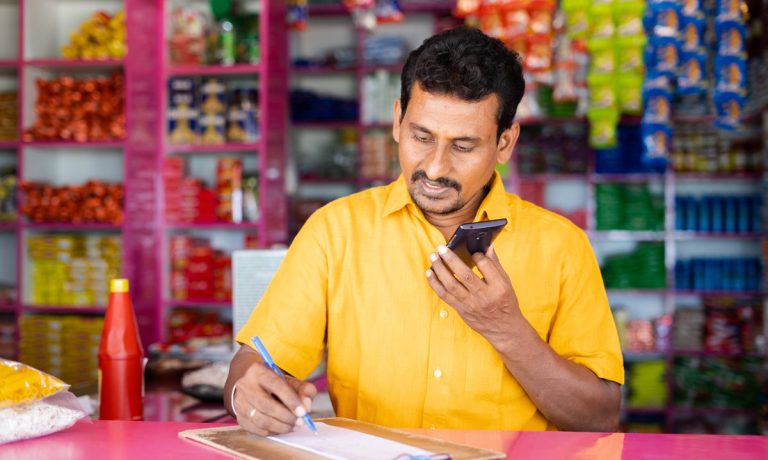India’s ElasticRun Raises $300M To Grow B2B Supply for Funding Rural Retailers

Indian eCommerce startup ElasticRun has raised $330 million, bringing the company’s valuation to $1.5 billion.
According to a press release posted Thursday (Feb. 17), the company — which provides supply chain and credit services to small Indian corner stores, known locally as “kirana” — will use the funding to expand into rural areas in more than two dozen states in India.
The round, led by SoftBank and Goldman Sachs, took in $30 million more than was projected when first announced last month. Other investors included Chimera and Innoven, along with existing investor Prosus Ventures.
Read more: ElasticRun Set to Raise $300M in SoftBank-Led Round
Founded in 2016 by Sandeep Deshmukh, Shitiz Bansal and Saurabh Nigam, ElasticRun works as an extended arm of the fast-moving consumer goods (FMCG) companies’ distribution reach.
According to the company, out of the 12 million kiranas — mom and pop stores — in India, traditional distribution networks reach around 2 million. ElasticRun uses data from these stores to anticipate demand, helping companies lower down costs and reach more customers.
Most of these stores are in rural markets, ElasticRun says, and thus typically not served by traditional distributors because of the high costs that come with shipping small orders to distant locations. ElasticRun says it helps these corner stores procure supplies from major brands, also letting them use its platform to access credit. The company projects sales by rural stores will reach the $600 billion mark over the next five years.
Read more: India’s Mom-And-Pop Revolution And SMBs’ Global Preparation For Reopening
That’s part of a larger retail market in India that is expected to reach $1.5 trillion by 2030, as we reported last year, with kiranas accounting for 88 percent of the brick-and-mortar market. It’s these stores that have been leading India’s retail recovery, as the competition is heating up among larger retailers to bring tens of millions of mom and pop stores into their supply chains.